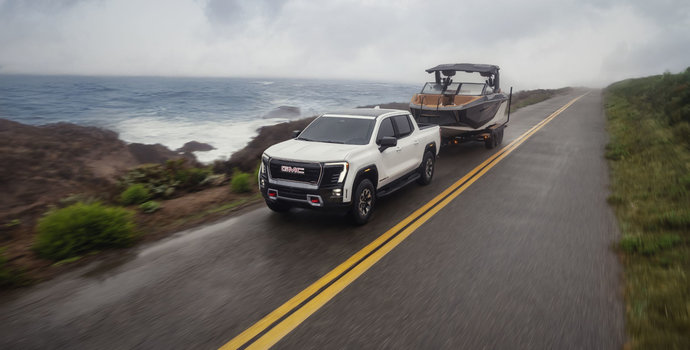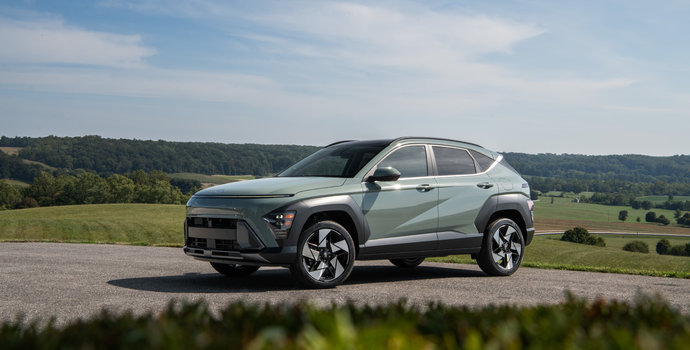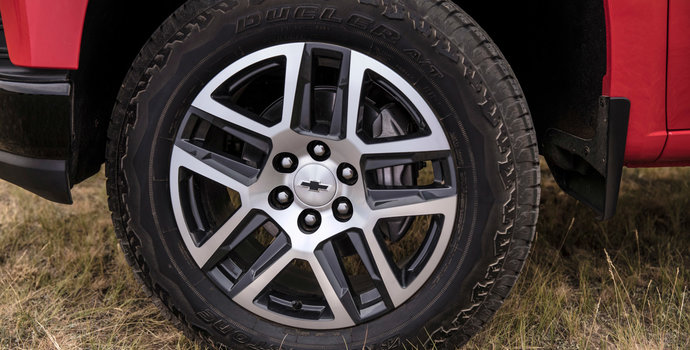Comparing Buying New vs. Used Cars
Buying a car is a big decision, and whether you go for new or pre-owned depends on what’s most important to you.
Why Buy New?
A new car can be exciting for many reasons. New vehicles also come loaded with the latest features, like advanced safety systems and high-tech displays. If you like your car to feel tailor-made, buying new lets you choose custom options that aren’t available with used cars. On top of that, there’s no history or wear to worry about, so you can feel confident in your purchase. Most new cars also come with warranties from the manufacturer, so you’re covered for major repairs or maintenance for the first few years.
Why Buy Used?
An obvious and significant difference between used and new cars is price. Used cars will always have a lower price tag than the same car that’s brand new and there’s no getting around it. For many buyers, a used car offers great value without breaking the bank. However, it’s important to understand that used vehicles can also be more expensive than new cars of a different brand, model and age.
Interest Rates & Incentives
For people who do not have the cash to buy a vehicle outright, things get more complicated when you start talking about taking out a car loan. You might expect that the interest rates for used cars would be lower than they are for new automobiles because they’re also cheaper to buy. In fact, the opposite is true.
If you want lower finance rates, auto manufacturers will offer great incentives to attract buyers by offering low interest rates for new vehicles — sometimes as low as 0% over a set period of time — as well as cash rebates. This means that the higher starting price you see on a new car can wind up being lower overall, plus you can split the cost into more manageable payments over time.
Leasing a Used Vehicle vs. a New Car
With both new and used vehicles, you also have the option of leasing. With leasing, you will often have lower monthly payments than if you finance the same car with the same loan terms.
Leasing has the added benefit that you can start a new lease every few years on another new car. However, in the case of used vehicle leases, they are not as common as new vehicle leases. You may have to hunt around for a dealership willing to work with your needs. New vehicles incur the most depreciation in their first year of purchase. So used car leases can be a solid option because the vehicle has already taken the brunt of depreciation before you get it, meaning your monthly payments would be lower than a lease on a new vehicle of the same make and model.
Warranties
Warranties can also have an impact on the cost of a new or used vehicle that you want to buy. Most used vehicles will not come with any warranty coverage. That means if something goes wrong with it, you’re on the hook for the cost of repairs and replacement parts.
You do have the option with some used car dealers to purchase warranty coverage, but they do not usually last long and the coverage is not as comprehensive. The only used cars that come with warranties are Certified Pre-Owned Vehicles, because they are relatively newer and some manufacturers offer warranty coverage on them.
However, none of those options will match the new car warranties you get from manufacturers. New car warranties last longer, cover a lot more in terms of the various parts and systems in the vehicle and they come standard when you buy a new vehicle.
Insurance Rates
When it’s time to get an insurance policy for your vehicle, there is a difference in how much you will have to pay between new and used cars. Two of the major factors in determining your monthly insurance payments are the age of the vehicle and its value. Accordingly, used cars will cost less to insure because they are both older and usually less expensive.
However, there is some wiggle room with this. A used Ferrari, for example, will be more expensive to insure than a new economy sedan. If you want to get the most value out of your vehicle, make sure you do your research into insurance costs ahead of time.
Performance & Fuel Efficiency
Manufacturers are always improving the performance and efficiency of new vehicles — whether it’s making engines with better fuel economy, making lighter vehicles using new materials or continually getting more horsepower from smaller engines. That also means that used vehicles will not have the same level of performance or fuel efficiency as a new vehicle. The older the used car is, the greater the discrepancy will be.
Some new vehicles, for example, will come with features like “stop and go” technology or a start-stop system where the engine automatically shuts down and restarts to reduce idling time - in turn making your vehicle more efficient during heavy traffic periods. Most used vehicles will be missing out on the latest advances in fuel efficiency.
Technology & Features
Similar to performance, there is also a difference in the level of technology and features between what you will find in new vehicles and in used cars. Whether they come as standard or optional extras, many vehicles come with fully integrated infotainment systems where you can connect your phone and have access to its music, messages, apps, etc. Unfortunately, used cars will only be as advanced as cars were made at the time they were built.
Safety
There have been a lot of advances in vehicle safety in recent years thanks to the evolution of features like artificial intelligence. Many vehicles now come with several new safety features that will automatically react to certain conditions faster than you can as the driver — emergency braking, alerting you to something in your blind spots and warning you when you are straying out of your lane are some examples.
The goal of constant advancements in engineering is to build new cars smarter, stronger and safer - so you can avoid accidents, but if they happen you are more secure in the event of a crash.
Reliability
The biggest stigma against buying a used vehicle is reliability — people are afraid that the vehicle they want to buy is not what it seems. The actual condition can be hidden with a pretty exterior, only to possibly find out it’s a piece of junk that needs a lot of costly repairs after the deal is done. While this fear is exaggerated and the cars on the market are made more reliable than they were a decade or two ago, this overall idea generally holds true: new cars are more reliable than used cars.
There are two reasons for this: first, engineering continues to evolve and improve so vehicles will not have nearly the same amount of breakdowns or shorter life spans. Second, the biggest issue of reliability is based on the age of the vehicle - the older a car is, the less reliable it will be.
Selection & Choice
One disadvantage for used cars is the lack of choice and selection. It can take a lot of time and effort to search online or visit different used car dealers until you find a vehicle that suits your needs and wants. Even if you have an idea of what deciding factors will make the cut such as make, model, trim, colour, age, kilometres, condition, price, etc. you will be at the mercy of what used cars are available on the market in your area and in your budget.
Meanwhile, for new vehicles you can visit one dealer that has the make and model you want with various options to choose from on their lot. You can pick the colour, automatic or manual transmission, gas or diesel, and the features, options or accessories it has. If it’s not available, you can sometimes pre-order the exact model you’re looking for. Simply put, you have a wide range of possibilities with new cars and it’s a lot easier to find them.
Should I Buy a New Car or a Used Car?
In the end, deciding whether it is better to buy a new or a used car really depends on your situation. If you have the money, buying a new car offers you much greater value in terms of financing, fuel economy, performance, safety, reliability and the amount of selection and choice you have.
But if you want to get the best value overall or if you are on a limited budget (or both), then it would be beneficial for you to buy a used vehicle.
Used Car vs. New Car Summary
Used Cars :
- Lower initial prices
- Less depreciation over time owned
- No incentives & higher finance rates
- Little/no warranty coverage unless extra coverage is purchased
- Cheaper to insure
- Less fuel efficient and loses power and performance over time
- Outdated technology or advanced features
- Older safety engineering and features
- Unknown reliability and less reliable than a new vehicle
- Fewer selection of vehicles
New Cars:
- More expensive prices
- Higher depreciation at a faster rate
- Cash, finance and lease incentives from manufacturers
- Standard manufacturer warranty coverage
- More expensive to insure
- Better fuel economy and more efficient performance
- Latest technology and features available
- Newest safety technology and features as standard and optional
- No history, no risk, better reliability, covered by warranty
- Choice of trim, colour, optional extras, accessories, etc.
You might also be interested in these guides:
How to Buy a New Car in Ontario
How to Buy a Used Car in Ontario
How to Buy a Car in Ontario as an Immigrant
How to Test Drive a Car
How to Lease or Finance a Car in Ontario







